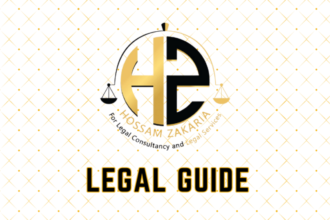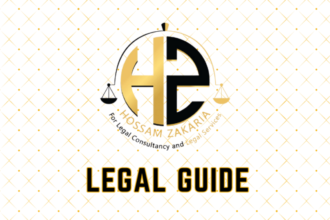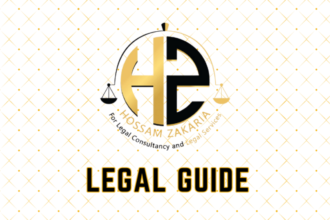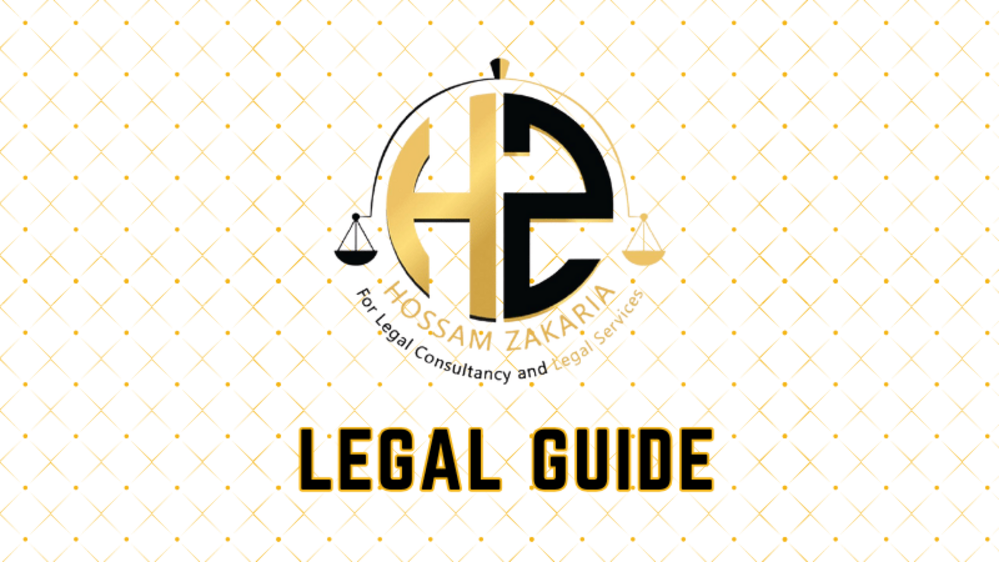Introduction: Navigating Disputes in Islamic Banking—A Crucial Concern for UAE Businesses
In the thriving landscape of Middle Eastern finance, Islamic banking plays a pivotal role in shaping commercial transactions and investment opportunities. As Saudi Arabia continues to lead the charge in Sharia-compliant finance, UAE businesses and legal practitioners are increasingly engaging with Saudi banking contracts, particularly those governed by Islamic law. Recent legal updates in both jurisdictions have heightened the complexity and significance of dispute resolution in this sector. For UAE-based organizations, executives, and legal advisors, understanding the nuances of resolving disputes in Islamic banking contracts under Saudi law is not just an academic interest—it is a commercial imperative.
This expert guide offers a rigorous legal analysis of the current landscape, delving into Saudi regulations, Sharia principles, and their practical implications for UAE businesses. We explore legislative frameworks, procedural mechanisms, compliance risks, and best practices—equipping stakeholders with the insights needed to proactively manage legal risk and ensure successful cross-border collaborations.
Table of Contents
- Legal Framework for Islamic Banking Disputes in Saudi Arabia
- Core Sharia Principles in Banking Contract Dispute Resolution
- Dispute Resolution Mechanisms: Courts, Arbitration, and Mediation
- Implications for UAE Businesses Engaged with Saudi Counterparties
- Compliance Strategies and Risks of Non-Compliance
- Case Studies and Hypothetical Scenarios
- Future Trends and Professional Recommendations
- Conclusion: Navigating Cross-Border Islamic Finance Contracts
Legal Framework for Islamic Banking Disputes in Saudi Arabia
Key Statutory and Regulatory Sources
Saudi Islamic banking operates under a unique amalgam of Sharia law, royal decrees, and sector-specific regulations. The Banking Control Law (Royal Decree No. M/5 of 1386H), alongside oversight by the Saudi Central Bank (SAMA), serves as the backbone of conventional and Islamic banking supervision. However, in the sphere of contractual dispute resolution, the influence of Sharia—more specifically, the Hanbali school of jurisprudence—predominates.
The core legislative sources include:
- The Banking Control Law—governing licensing and supervision of banks, including Islamic finance providers.
- Royal Decrees and Ministerial Circulars—which clarify permitted banking activities and dispute procedures.
- The Enforcement Law (Royal Decree No. M/53/1433H)—relevant for cross-border enforcement of awards and settlements.
- Guidance from SAMA on dispute resolution frameworks and mandatory customer complaint procedures.
Notably, there is no codified “Islamic Banking Law” in Saudi Arabia; rather, Sharia principles are embedded within the banking sector’s regulatory structure, and all contracts and dispute processes must comply with those principles.
Saudi Legal Updates: Impact on Contractual Dispute Handling
Recent legal developments in Saudi Arabia—including the 2022 update to the Enforcement Law, and enhanced SAMA dispute protocols—have signaled a stricter approach to resolving banking disputes. These changes boost transparency, clarify counterparty rights, and align dispute resolution stages more closely with international best practices.
Key reforms include:
- Increased judicial transparency in banking dispute committees (specialized quasi-judicial bodies for banking and finance cases).
- Streamlined complaint-handling procedures with defined response deadlines.
- Expanded recognition of arbitration awards in international cross-border financial disputes.
For UAE legal practitioners, these developments provide clearer pathways for resolving disputes with Saudi counterparties, while underscoring the need for meticulous contract drafting to accommodate Saudi procedures and definitions of Sharia compliance.
Core Sharia Principles in Banking Contract Dispute Resolution
The Central Role of Sharia in Islamic Financial Contracts
Sharia (Islamic law) forms the backbone of all banking transactions in Saudi Arabia. The Hanbali school—predominant in Saudi jurisprudence—dictates specific rules for the execution, interpretation, and enforcement of contracts. Key contractual principles include:
- Prohibition of riba (interest): Financial gains must not be interest-based, affecting common dispute themes like penalty clauses and default interest.
- Prohibition of gharar (uncertainty): Contracts must not involve undue ambiguity; all essential terms must be clear and agreed.
- Prohibition of maysir (gambling/speculation): Agreements with speculative risk are typically considered void.
- Principle of fairness and mutual benefit: Contracts must be equitable, and unjust enrichment is prohibited.
These Sharia precepts directly influence both the substance of contract disputes and the procedural tools available for their resolution.
Implications for Parties in UAE–Saudi Contracts
UAE businesses entering into contracts with Saudi banking institutions must ensure that all contractual terms—including dispute resolution, choice of law, and performance clauses—are Sharia-compliant as per Saudi interpretation. For example, the “interest-on-late-payment” mechanism common in conventional contracts is unenforceable in Saudi Islamic contracts. Legal counsel should review agreements for compliance with Sharia prohibitions and consult Sharia scholars when necessary.
| Aspect | Conventional Banking | Islamic Banking |
|---|---|---|
| Governing Law | Saudi statutes + Sharia principles | Sharia is paramount |
| Dispute Resolution | Judicial or arbitral (contractual freedom) | Only Sharia-compliant forums and procedures |
| Interest/Penalties | Permissible, within statutory limits | Prohibited; alternative remedies used |
| Uncertainty Clauses | Reduced scrutiny | High scrutiny—contracts invalid if ambiguous |
Dispute Resolution Mechanisms: Courts, Arbitration, and Mediation
Court-Based Dispute Resolution
Banking and commercial disputes in Saudi Arabia are traditionally resolved through the Saudi courts, primarily the Banking Disputes Committee (established under the Ministerial Decision No. 729/2000). This committee exercises exclusive jurisdiction over financial contract disputes, subject to appellate oversight by the Administrative Court (Diwan Al Mazalem).
Key features:
- Expedited Timelines: Statutory deadlines require decisions within strict timeframes for most contractual disputes.
- Mandatory Pre-litigation Procedures: Parties must attempt to resolve disputes via internal bank complaint mechanisms before litigation.
- Sharia Review: All judgments and remedies are screened for Sharia compliance—contract terms in violation are rendered void.
Islamic Arbitration and Alternative Dispute Resolution
Saudi law permits arbitration, provided the agreement and arbitral process adhere to Sharia. The Saudi Arbitration Law (Royal Decree No. M/34 of 1433H/2012) is largely based on the UNCITRAL Model Law, with important modifications:
- Arbitration tribunals must ensure awards are Sharia-compliant.
- Parties may specify foreign arbitral forums—but enforceability within Saudi Arabia may be declined if the award contravenes Sharia or Saudi public policy.
- SAMA encourages banks and customers to resolve minor disputes through mediation or SAMA-facilitated Ombudsman processes before proceeding to litigation or arbitration.
UAE businesses with arbitration clauses should ensure that such clauses specify the Sharia-compliant nature of proceedings and address enforceability standards under Saudi law.
Case Flow Diagram Suggestion: The Saudi Banking Dispute Resolution Pathway
Visual Recommendation: Insert a process flow diagram illustrating the sequential steps in resolving a typical banking contract dispute in Saudi Arabia—From complaint filing to Banking Disputes Committee hearing, through mediation, arbitration and final enforcement.
Implications for UAE Businesses Engaged with Saudi Counterparties
Contract Drafting Considerations
The growing trade and investment ties between UAE and Saudi Arabia mean that UAE businesses routinely enter into banking, trade finance, and investment contracts subject to Saudi regulations. When structuring such agreements, parties must:
- Vet All Clauses for Sharia Compliance: Especially those relating to profit, interest, penalties, and indemnities.
- Customise Dispute Resolution Clauses: Ensure that chosen methods (courts, arbitration, mediation) are enforceable under Saudi law—including explicit reference to Sharia compliance.
- Anticipate Enforcement Hurdles: Foreign judgments and arbitral awards are not automatically enforceable in Saudi Arabia if they breach Sharia or public policy.
- Clarify Governing Law and Jurisdiction: Even if the contract nominally chooses UAE law, Saudi courts may apply Sharia in substance for disputes arising in or affecting Saudi interests.
Comparison Table: UAE vs. Saudi Dispute Resolution Environments
| Aspect | UAE (Federal Law No. 6/2021, as amended 2025) | Saudi Arabia (Sharia plus Banking Control Law) |
|---|---|---|
| Contract Enforcement | Codified civil/commercial law; Sharia applies in family/personal matters | No unified commercial code; Sharia paramount in all matters |
| Dispute Forums | Civil courts, DIFC/ADGM, broad acceptance of arbitration | Banking Disputes Committee, general courts, restricted arbitration (Sharia-compliant only) |
| Interest Clauses | Permissible, subject to legal cap | Strictly prohibited; alternatives like late payment donations |
| Recognition of Foreign Awards | Wide under New York Convention | Conditional—only if Sharia and Saudi policy requirements met |
Practical Example
Consider a UAE firm supplying IT services to a Saudi bank under a Murabaha-based financing structure. A dispute arises over delayed payment. While the UAE supplier might expect compensation for delay (interest or penalty), Saudi law denies this due to riba. Instead, parties may agree on a “charitable donation” or an administrative fee, with court oversight to ensure Sharia compliance. If the parties elect arbitration in Dubai, they must ensure the arbitral process explicitly considers Sharia principles, else enforcement in Saudi courts may be denied.
Compliance Strategies and Risks of Non-Compliance
Risks of Non-Compliance
Legal and operational risks are significant for UAE businesses failing to meet Saudi Sharia and regulatory mandates:
- Contract Nullity: Any clause in violation of Sharia may be declared void, potentially jeopardising the entire contract or key rights.
- Enforcement Risks: Judgments or awards obtained outside Saudi Arabia may not be enforced if they breach Saudi public policy or Sharia tenets.
- Regulatory Sanctions: SAMA can impose financial penalties, suspend operations, or revoke licenses for non-compliance.
- Reputational Damage: Failure to adhere to Sharia norms can harm business relationships and standing in both Saudi Arabia and the broader GCC.
Compliance Best Practices for UAE Businesses
- Engage Dual-Jurisdiction Legal Advisors: Involve counsel versed in both UAE and Saudi (Sharia/Banking) law for contract drafting and review.
- Use Standardised, SAMA-Endorsed Templates: Leverage model contracts approved by Saudi authorities where possible.
- Include Sharia Advisory Board Approvals: Incorporate approval mechanisms for complex financial products or novel structures.
- Schedule Regular Compliance Audits: Continuous review of operations and contracts for evolving legal requirements.
- Document and Adhere to Dispute Escalation Procedures: Meticulously follow internal bank complaint and mediation processes prior to litigation/arbitration.
| Checklist Item | Action Required | Frequency |
|---|---|---|
| Contract Review | Assess Sharia and regulatory compliance for all terms | Prior to execution and annually |
| Dispute Resolution Clause Update | Ensure enforceability under Saudi law | Annually/as regulations change |
| Staff Training | Educate commercial and legal teams on Saudi dispute protocols | Annually |
| Internal Audit | Review compliance with SAMA rules and internal protocols | Quarterly |
Case Studies and Hypothetical Scenarios
Case Study: Default Payment in a Cross-Border Sukuk
A UAE investment company subscribes to a Saudi-issued Sukuk (Islamic bond). The issuer encounters financial difficulty and defaults. The Sukuk contract provides for penalty interest on missed payments—enforceable under UAE law, but invalid under Saudi Sharia principles. The dispute is referred to the Saudi Banking Disputes Committee, which nullifies the penalty clause, but upholds the principal repayment obligation. The committee encourages the parties to resolve the outstanding sums through constructive negotiation or voluntary donation, in line with Sharia expectations.
Hypothetical Example: Arbitration Clause Pitfall in UAE-Saudi Murabaha
An Emirati entity uses a template agreement, specifying London Court of International Arbitration (LCIA) as the forum, with English law as governing law. Upon dispute, the Saudi party challenges enforcement in local courts—arguing the contract is not Sharia-compliant and the foreign award offends Saudi public policy. The Saudi court rules the arbitration award unenforceable. This highlights the need for Saudi-familiar legal input at drafting stage.
Future Trends and Professional Recommendations
Evolving Legal Landscape
Saudi Arabia is steadily reforming its commercial and dispute resolution frameworks to attract foreign investment and facilitate cross-border Islamic finance. Expected developments include:
- Increased codification of commercial provisions to harmonize interpretation and reduce unpredictability.
- Enhanced recognition of international arbitration awards, provided procedural and Sharia conditions are met.
- Expansion of the SAMA Ombudsman’s remit to include more diversified dispute resolution options.
Strategic Recommendations for UAE Clients
- Early Legal Due Diligence: Assess proposed banking structures and related dispute provisions at the outset of negotiations.
- Customise Risk Allocation: Use innovative contract mechanisms—such as Sharia-compliant service charges or structured donations—to address late payment or performance failures.
- Embed Mediation: Build pre-agreed mediation or SAMA-Ombudsman escalation processes into contracts.
- Ongoing Engagement with Regulators: Maintain open dialogues with SAMA and Saudi legal experts to monitor regulatory changes and interpretative trends.
Visual Recommendation: Consider adding a penalty comparison chart summarizing risks and sanctions under both UAE and Saudi frameworks to reinforce compliance priorities.
Conclusion: Navigating Cross-Border Islamic Finance Contracts
The intersection of Saudi Sharia law and Islamic banking regulation creates a complex regulatory environment for UAE businesses, legal counsel, and executives conducting cross-border transactions. The recent drive for legal modernization in Saudi Arabia offers new opportunities—but also introduces new compliance challenges, especially in dispute resolution. To succeed, organizations must go beyond template-driven approaches: careful contract drafting, dual-jurisdiction legal advice, Sharia-compliant dispute procedures, and ongoing regulatory vigilance are essential.
As Saudi Arabia deepens its international ties and UAE law (notably through 2025 updates to Federal Law No. 6/2021) continues to evolve, forward-thinking organizations will treat cross-border legal risk as a dynamic, permanent feature of Islamic finance. By embracing best practices and seeking expert guidance, UAE entities can confidently structure successful, lasting banking collaborations with their Saudi counterparts—unlocking value and minimizing costly legal pitfalls in the years ahead.



